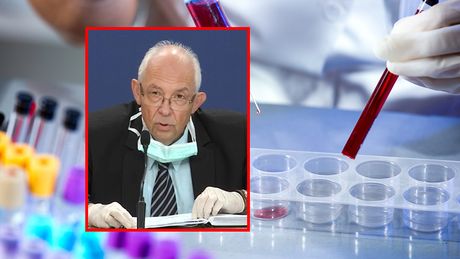In Serbia coronavirus patients' treatment with blood plasma starts in 10 days; here's what it means
Prime Minister of Serbia Ana Brnabic revealed on TV Pink that in about ten days, treating of coronavirus patients in Srbia would start with blood plasma therapy.
"We take blood from people who are cured and give that plasma by transfusion to people who are sick. The reason why we are only launching this in about 10 days is because that will be 21 days since the first case of a cured person in Serbia," she said.
In France, a clinical trial is underway to inject the blood plasma of Covid-19 patients into "patients in the acute phase of the disease."
The clinical trial consists of a plasma transfusion from former Covid-19 patients which contains antibodies to the virus that could transfer that immunity to a patient with Covid-19, according to a joint statement by the Paris University Clinic, the French Blood Institute, and the State Institute for Health and Medical Research, Hina agency reported.
Mass ELISA testing after the epidemic ends
Brnabic also said last tonight that a decision had been made to set up a laboratory with the Institute for the Application of Nuclear Energy to produce ELISA tests, which Dr. Predrag Kon spoke about during the day's news conference.
He pointed out that this data will be very valuable in the future, and that samples will be taken by ELISA tests that test for the presence of antibodies in blood, which results in so-called seroprevalence, the exact percentage of those who are protected.
"In the general population, it makes sense to do the test once everything is over, i.e. after the epidemic, in the summer. We can then test for the presence of antibodies that will show how sensitive the population is. The so called representative sample is taken in different parts of the territory of Serbia and indicates the presence or absence of antibodies. Those who have antibodies have immunity, whether they had been symptomatic or asymptomatic,"said Dr. Kon.

What are ELISA tests?
The test detects proteins produced by the body in response to the presence of the virus. These proteins, called antibodies, are defense molecules that make up the B cells of the immune system of the human body. Most commonly the presence of antibodies is checked in blood, while rapid saliva and urine tests are also available.
The ELISA test has long been helping patients. Test accuracy is measured in several ways. The precision can relate to the test itself or the test results. Speaking of test precision, people generally want to know how good the EIA test is in determining who has and who doesn't have the virus. When it comes to precision, it is important to know how much a positive or negative test result can be trusted.
Precision benchmarks have been established by large and detailed studies during the 1980s and 1990s, while more recently, additional attention has been paid to newer, fourth generation of tests.
Video: Loncar: City hospitals, not VMA, will accept patients with coronavirus
(T.T./Telegraf.rs)
Video: Hurts na EXIT festivalu
Telegraf.rs zadržava sva prava nad sadržajem. Za preuzimanje sadržaja pogledajte uputstva na stranici Uslovi korišćenja.

